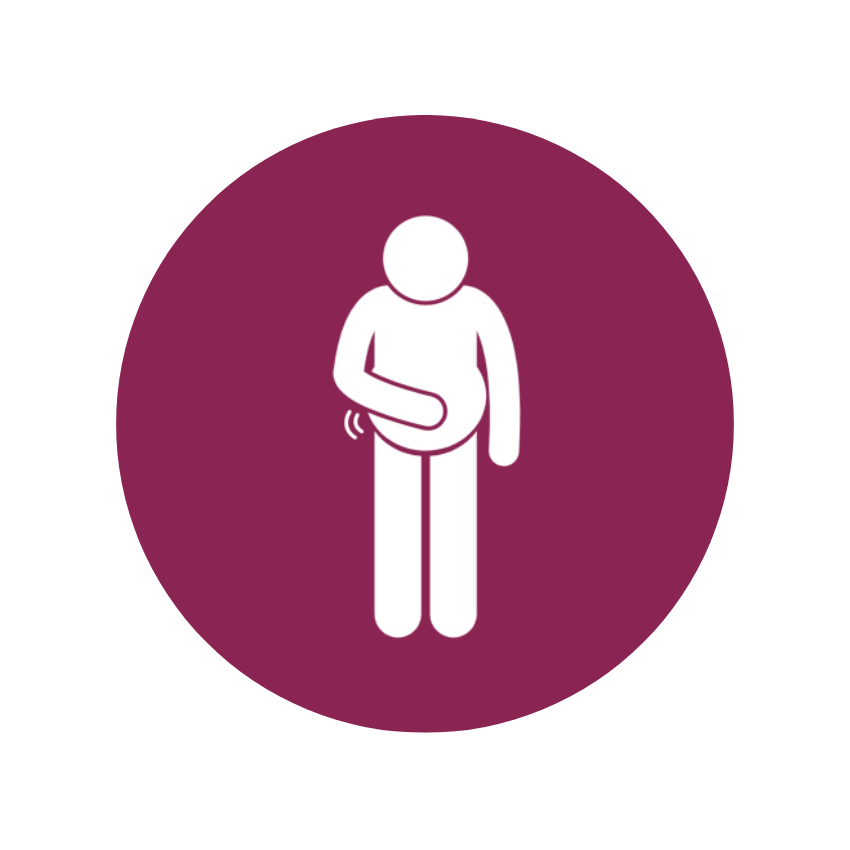Tackling Stomach Issues: Understanding Irritable Bowel Syndrome (IBS)
Irritable Bowel Syndrome (IBS) is a common gastrointestinal condition that often perplexes those who experience it. IBS brings forth an array of digestive symptoms, impacting daily life significantly. Today, we navigate the realm of IBS, shedding light on its complexities, triggers, and effective methods for managing symptoms and seeking relief.
Understanding Irritable Bowel Syndrome (IBS)
IBS stands as a chronic gastrointestinal disorder primarily affecting the large intestine, or colon. Its symptoms encompass a blend of abdominal discomfort, bloating, cramping, diarrhea, constipation, or a combination of both. While the precise cause remains elusive, factors like abnormal gut motility, heightened visceral sensitivity, intestinal inflammation, and alterations in gut microbiota are thought to contribute to IBS.
Common Symptoms of IBS
IBS manifests uniquely in each individual, presenting symptoms such as:
Abdominal Discomfort: Recurrent abdominal pain or discomfort, often relieved by bowel movements, characterizes IBS.
Altered Bowel Habits: IBS can trigger changes in bowel habits, including diarrhea, constipation, or alternating episodes of both.
Bloating and Gas: Experiencing excessive gas and bloating is commonplace among those with IBS.
Mucus in Stool: Some individuals notice the presence of mucus in their stool during IBS flare-ups.
Fatigue and Sleep Disturbances: Chronic abdominal discomfort and bowel irregularities can lead to fatigue and disrupted sleep patterns.
Triggers of IBS Symptoms
Understanding and managing triggers play a pivotal role in mitigating IBS symptoms, with common triggers including:
Dietary Factors: Certain foods and beverages like high-fat foods, spicy dishes, dairy products, caffeine, alcohol, and artificial sweeteners may exacerbate IBS symptoms.
Stress and Anxiety: Emotional stress, anxiety, and psychological factors can intensify IBS symptoms in susceptible individuals.
Hormonal Fluctuations: Hormonal changes, particularly in women during menstruation or menopause, may influence IBS symptoms.
Medications: Certain medications such as antibiotics, pain relievers, and antidepressants may aggravate IBS symptoms.
Gut Microbiota Imbalance: Alterations in the gut microbiota composition may contribute to IBS symptomatology.
Managing IBS and Seeking Relief
While IBS lacks a definitive cure, adopting various strategies can aid in symptom management and enhancing quality of life:
Dietary Adjustments: Identifying and avoiding trigger foods is crucial. Collaborating with a registered dietitian to devise a personalized low-FODMAP diet can alleviate symptoms for some individuals.
Stress Management: Engaging in stress-reduction techniques like mindfulness, deep breathing exercises, yoga, or meditation can help manage stress and anxiety, which often exacerbate IBS symptoms.
Regular Exercise: Incorporating regular physical activity such as walking, swimming, or cycling can promote overall health and improve bowel function.
Medications: Depending on predominant symptoms, healthcare providers may prescribe medications like antispasmodics, laxatives, fiber supplements, or antidepressants to manage IBS symptoms effectively.
Probiotics: Some individuals find relief from IBS symptoms by incorporating probiotic supplements, which may restore gut microbiota balance.
Behavioral Therapy: Cognitive-behavioral therapy (CBT) or other psychotherapeutic interventions can be beneficial for individuals with significant stress or anxiety contributing to their IBS symptoms.
Conclusion
Navigating life with IBS can present challenges, but armed with knowledge, strategies, and support, individuals can effectively manage symptoms and enhance their quality of life. By identifying triggers, making dietary and lifestyle modifications, and exploring suitable treatment options, one can take charge of their symptoms and seek relief from the discomfort of IBS. Stay tuned for more health-centric insights and information in our upcoming posts, and remember – with proactive management, navigating the complexities of IBS becomes more manageable, prioritizing digestive health and overall well-being.
Consult one of our allergy specialist at Allergy and Asthma Care of Brooklyn for guidance on treating your stomach allergies.

